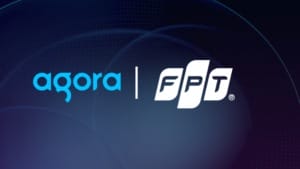Meta explores an AI briefing tool aimed at Facebook users
Meta is developing Project Luna, an AI tool designed to deliver personalised morning Facebook briefings to users.

Meta is developing a new artificial intelligence feature that could offer users a personalised morning summary of their Facebook activity, as the company continues to invest heavily in AI infrastructure and talent. Despite significant spending, Meta’s consumer-facing AI products have so far gained limited traction, often appearing as experimental tools rather than everyday utilities. The latest project suggests the company is now seeking more practical ways for people to use its technology.
Table Of Content
Meta’s growing focus on practical AI tools
Meta has reportedly shifted its focus to AI features that provide useful daily functions, aiming to keep pace with OpenAI’s ChatGPT, Google’s Gemini, and Microsoft’s Copilot. According to internal documents seen by The Washington Post, Meta is working on a tool that reviews a user’s Facebook feed and delivers a tailored morning briefing based on its findings.
“The effort, dubbed Project Luna internally, would analyse Facebook content and external sources to push custom updates to its users,” The Washington Post reported. The concept is comparable to OpenAI’s ChatGPT Pulse, which already provides personalised updates drawn from various online sources.
The briefing tool should summarise posts, updates, and relevant content into a simple format that users can read at the start of each day. For Meta, this marks a move away from the more experimental AI additions seen in recent months and towards features that could enhance daily engagement.
Earlier versions of AI-powered briefings
The idea of an AI-generated daily briefing is not new. Samsung introduced a comparable feature called Now Brief on its smartphones, which is available across Galaxy devices running One UI 7 or later. Now Brief gathers information from news, travel, health, reminders, and other apps and presents it in a clean dashboard.
Samsung’s feature itself reflects earlier inspirations, including Google’s At a Glance tool on Pixel smartphones. These systems aim to provide users with a quick and unobtrusive overview of essential daily information, reducing the need to sift through multiple apps or notifications.
Project Luna appears to follow a similar template, though Meta’s implementation would focus primarily on Facebook activity rather than insights drawn from a broader range of apps. This smaller scope may allow Meta to refine the feature before potentially expanding it across Instagram, Threads, or WhatsApp.
Expert view on the potential impact
Meta is expected to trial the AI briefing tool with a limited group of users in New York and San Francisco. The company has not confirmed whether wider testing or a public release will follow, nor whether the tool might one day support Meta’s other social platforms.
So far, the reception to Meta’s AI upgrades has been mixed. Although Meta AI is available across major apps and even integrated into the company’s smart glasses, many users have found its capabilities limited compared to more advanced systems like ChatGPT and Gemini. The recent introduction of AI-generated videos within its apps, as well as the standalone Vibes app, has also faced pushback.
A summarised daily Facebook briefing, however, may be viewed more positively. By reducing the need to scroll through numerous notifications and updates, the tool could offer a calmer and more streamlined experience. Industry observers note that Meta’s greatest asset remains its vast social ecosystem, and meaningful AI features integrated into these platforms could help the company unlock fresh revenue opportunities linked to AI adoption.
















